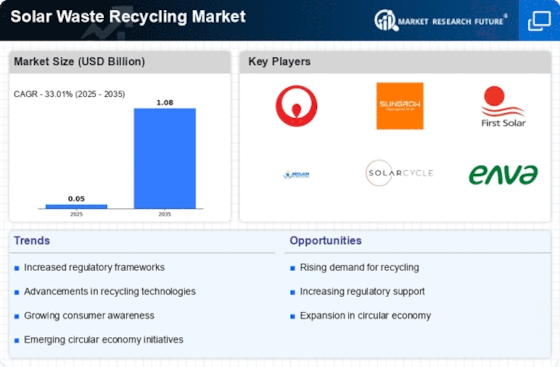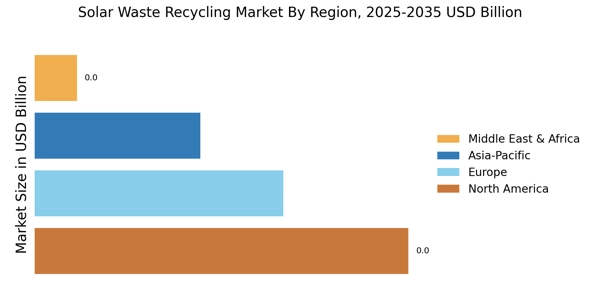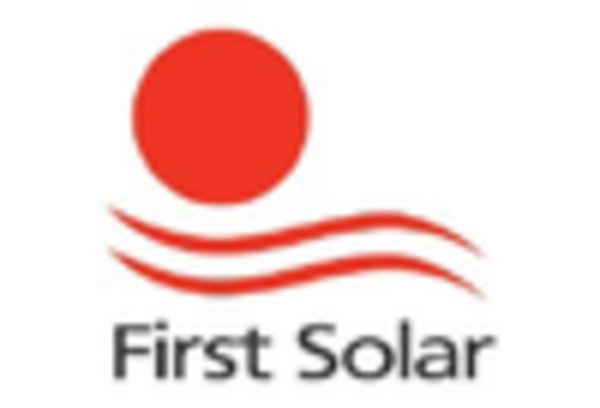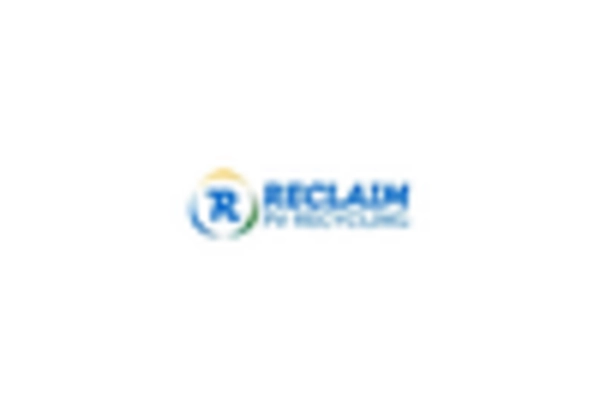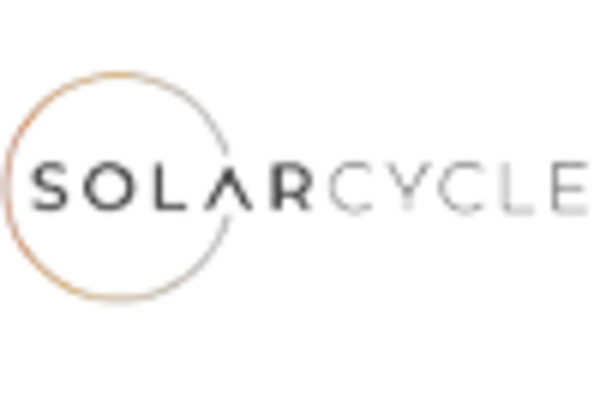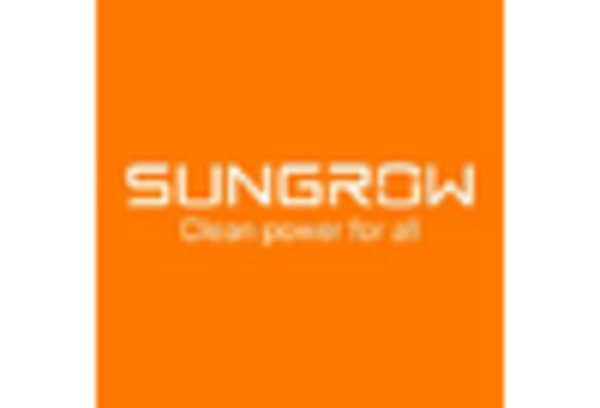Consumer Awareness and Sustainability Trends
The Solar Waste Recycling Market is benefiting from a growing consumer awareness regarding sustainability and environmental responsibility. As individuals and organizations become more conscious of their ecological footprint, there is an increasing demand for products and services that align with sustainable practices. This trend is influencing the solar industry, where consumers are now more inclined to choose solar solutions that incorporate recycling initiatives. By 2025, it is anticipated that consumer preferences will drive a 25% increase in demand for solar products with recycling programs. This shift in consumer behavior is likely to create new opportunities within the Solar Waste Recycling Market, as companies adapt to meet these expectations.
Rising Demand for Renewable Energy Solutions
The Solar Waste Recycling Market is closely tied to the increasing demand for renewable energy solutions. As more countries invest in solar energy to meet their energy needs, the number of solar panels in use continues to rise. This growth leads to a corresponding increase in solar waste, necessitating effective recycling solutions. By 2025, the global installed solar capacity is expected to exceed 1,000 GW, resulting in millions of tons of solar waste that will require recycling. The urgency to manage this waste sustainably is likely to propel the Solar Waste Recycling Market forward, as stakeholders recognize the importance of responsible waste management in the renewable energy sector.
Economic Incentives and Funding Opportunities
The Solar Waste Recycling Market is poised to benefit from various economic incentives and funding opportunities aimed at promoting recycling initiatives. Governments and private organizations are increasingly offering grants, subsidies, and tax incentives to encourage the development of recycling facilities and technologies. These financial supports are designed to lower the barriers to entry for new players in the Solar Waste Recycling Market, fostering competition and innovation. By 2025, it is projected that such incentives could lead to a 40% increase in the establishment of recycling facilities, thereby enhancing the overall capacity of the market. This influx of funding is likely to stimulate growth and drive advancements in recycling technologies.
Regulatory Support and Compliance Requirements
The Solar Waste Recycling Market is significantly influenced by evolving regulatory frameworks aimed at promoting sustainable practices. Governments are implementing stricter regulations regarding the disposal and recycling of solar panels, which are expected to reach their end-of-life in increasing numbers. For instance, regulations may mandate that manufacturers take responsibility for the recycling of their products, thereby creating a closed-loop system. This regulatory support is likely to stimulate the Solar Waste Recycling Market, as compliance becomes essential for manufacturers and recyclers alike. By 2025, it is projected that compliance with these regulations could lead to a 30% increase in recycling rates, further driving the market's growth.
Technological Innovations in Solar Waste Recycling
The Solar Waste Recycling Market is experiencing a surge in technological innovations that enhance recycling processes. Advanced techniques such as hydrometallurgical and pyrometallurgical methods are being developed to recover valuable materials from solar panels, including silicon, silver, and rare metals. These innovations not only improve recovery rates but also reduce the environmental impact of recycling operations. As of 2025, it is estimated that the recycling of solar panels could recover up to 95% of the materials used in their production. This technological progress is likely to attract investments and drive growth in the Solar Waste Recycling Market, as companies seek to optimize their operations and meet increasing regulatory demands.


